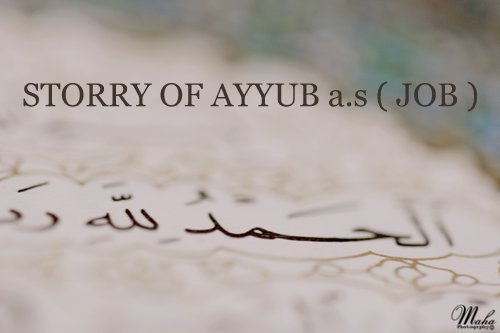Stories in the Quran are usually told in small pieces and revealed over several chapters.
The story of Prophet Joseph, however, was revealed in one chapter.
It is a complete story framed at either end by an introduction and an epilogue.
Throughout the story, as we move through Joseph’s life, we learn lessons that are valuable even today.
Joseph’s joys, troubles, and sorrows arm him with piety and patience. And if we read carefully and ponder God’s words, we too will emerge armed with the tools we need to succeed in this life and the Hereafter.
Renowned Islamic scholar Ibn-ul Qayyim (1292 – 1350 CE) was able to derive 1000 lessons from the story of Prophet Joseph.
A more modern scholar, Sheikh A R Naasir Al-Saadi (1889 – 1956 CE), wrote extensively about thirty three lessons he gleaned from the chapter.
In the introduction to this story God tells us that this is the best of stories. It is a tale of rags to riches, debasement to grandeur and hardship to ease.
There are countless articles, numerous books, and eBooks by renowned writers plus videos made by speakers from across the globe that can help us understand the lessons to be found in the story of Prophet Joseph.
This article will briefly discuss four important lessons that may set you on a journey of discovery through the teachings in the story of Prophet Joseph (peace be upon him).
Jealousy
Early on in the chapter, beginning in verse five, Joseph’s father, Prophet Jacob makes us aware of the existence of jealousy and teaches us how to avoid causing jealousy amongst others.
The sons of a Prophet are planning to kill their own brother. This is a despicable act and gives us a strong indication of the power of jealousy. It has the power to alter a person’s mental state. Thus we are reminded to not show off our bounties and blessings.
Jealousy, when aroused, can cause strife and conflict. We are also cautioned not to become jealous of what others have because it is no indication of what they will have when they stand before God.
Prophet Muhammad warned us against jealousy saying that it ate up good deeds the way fire eats up wood[1].
The story of Joseph also reminds us that jealousy is the work of Satan. Throughout the Quran we are reminded comprehensively to beware of jealousy and the many other traps of Satan.
Patience
One of the important lessons we learn from Prophet Joseph’s story is that there are different types of patience.
One type is the patience that comes after a calamity. If something bad happens to us, we must try our best to refrain from saying things such as:
“Oh God, why is this happening to me, I don’t deserve it”.
We must never accuse God of being unjust.
Prophet Jacob gives us an excellent example of this patience that is often called beautiful patience.
In verse twelve, when Joseph’s brothers returned to their father telling him that Joseph had been taken by a wolf, Jacob’s heart constricts with agony. He knows he has no option except to face his fear with complete submission to God. Thus he turns to God with patience and hope.
When he was trapped deep in the well, Joseph prayed rather than blaming God for his misfortune.
Both father and son turned to God with beautiful patience. In the last verses of the story when a new sorrow, the loss of Benjamin, overwhelms Jacob, his first reaction is to be patient.
Instinct
One of the blessings from God is our intuition or gut instinct. The more righteous a person is, the more likely that person’s moral compass or gut instinct is rightly guided.
Prophet Muhammad told us to beware of the instinct of a believer because he sees by the light of God[2].
When the brothers came back to their father with their tale about a wolf, he knew immediately that something was not right. We are not able to charge a person with a crime on the basis of a feeling, however if in a business transaction or a marriage proposal we feel that something is not right, it is perfectly acceptable to be guided by that feeling.
Trust
The Prophets Joseph and Jacob had complete trust in God. They both recognized that God was the only thing in their lives that they could totally rely upon. In verse 33, Joseph calls upon God to rescue him from the dangerous situation he was in regarding the minister’s wife.
He knew that God will save the righteous when they most need Him, and that all a believer is required to do is to call out to God for help. Those who entrust all their affairs to God will get consolation and comfort.
In verse 55, when Joseph is made the finance minister of all Egypt, we see his patience, perseverance, and complete trust in God reaping rewards.
However, Joseph was well aware that the greatest reward was to be found in the Hereafter.
Towards the end of the chapter in verse 64, Jacob’s absolute trust in God allows him to let the brothers take Benjamin to Egypt.
The Final Verse
God closes the story of Joseph with an epilogue. The introductory three verses taught us that what we were about to read was the best story.
In the last verse, God tells us that this story, as well as all the stories revealed in the Quran about the Prophets and Messengers contain lessons for people of understanding.
He says that the stories are not fabricated rather they are true stories revealed for the benefit of those with sound intellect.
Those who do not use the mind, that God has blessed them with, read the stories and see them as nothing more than fairy tales or bedtime stories.
For the believers however, these stories are useful and instructive lessons. They give the details of everything that is required for the guidance of humankind. They teach us about triumph and defeat, success and obstruction, joy and misfortune.
The stories God relates help us to determine what part of this life is valuable and what things we should avoid no matter how enticing they appear to be.
The story of Prophet Joseph in particular is a tale of brimming over with lessons that we can learn from in any place or situation. It focuses on patience in the face of adversity and trust in God when circumstances have left us bereft and alone.
____________
[1] Ibn Majah
[2] At Tabarani
(From Discovering Islam’s archive)




